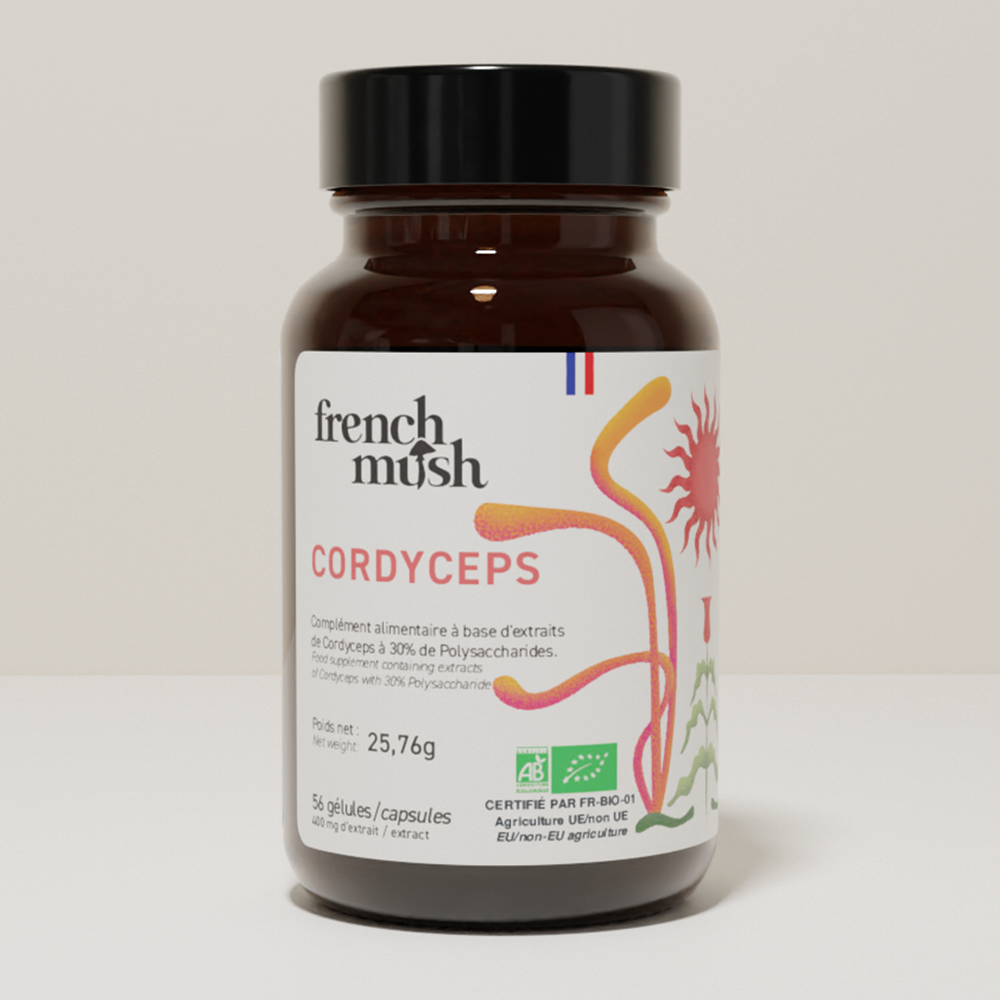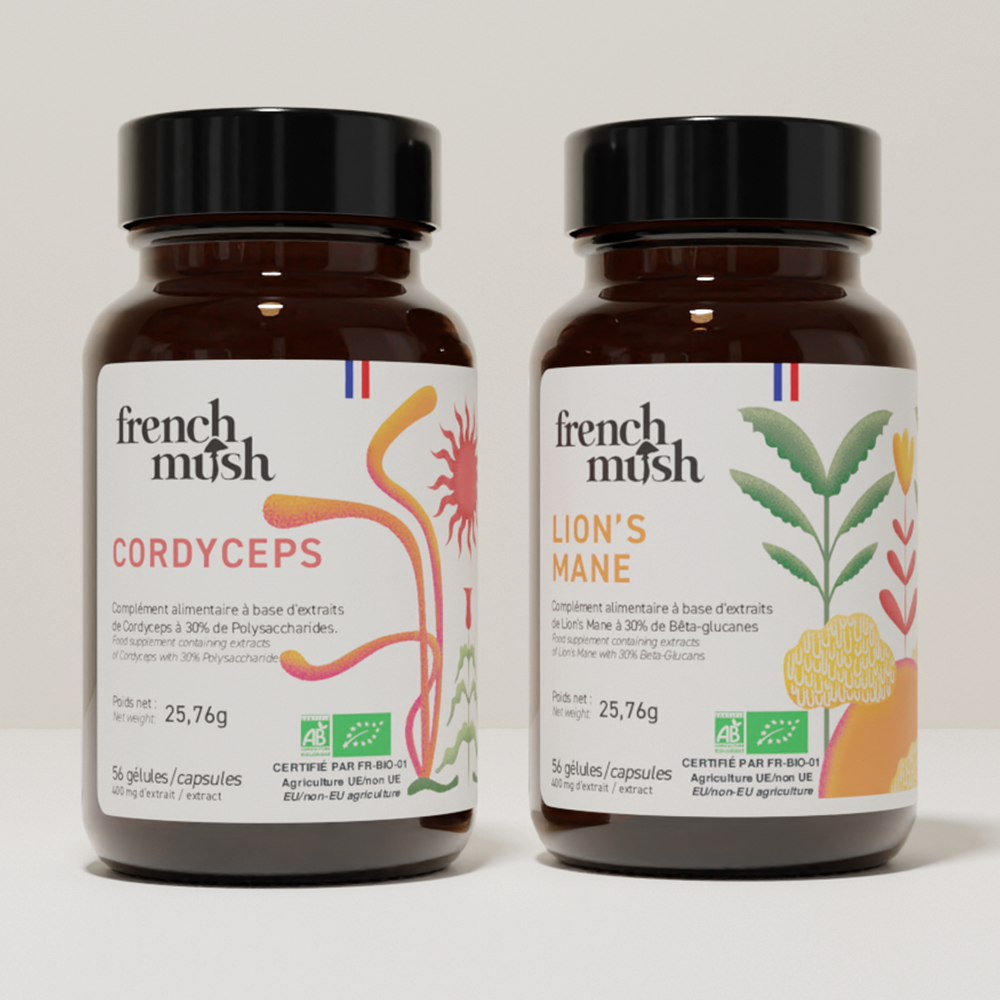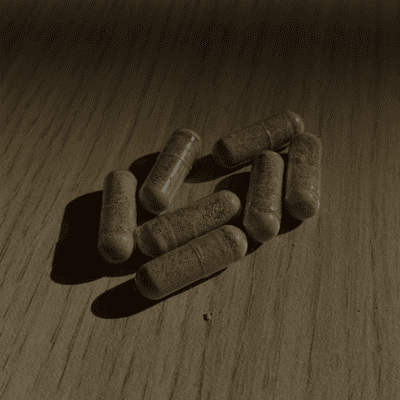Nature is full of plants and mushrooms with astonishing virtues that are still unknown to the general public.
Among these natural wonders, Cordyceps, a rare mushroom found mainly in the Tibetan highlands, has attracted growing interest from researchers due to its unique active compound : cordycepin.
This promising biocompound is currently being studied for its potential therapeutic benefits, adding a new dimension to our understanding of natural remedies.
Let’s find out why together with this article.
Origins and sources of cordycepin
An unusual mushroom: Cordyceps
Cordyceps sinensis and Cordyceps militaris are two species of mushrooms renowned for their ability to infect caterpillars and grow from their bodies.
These mushrooms mainly grow at high altitude, above 3500 meters, particularly in the regions of Tibet.
Their particular growth and harsh environment contribute to their rarity and therefore their high value.
- Cordyceps sinensis: Known as the "caterpillar fungus", it grows mainly on the Tibetan plateau .
- Cordyceps militaris: This is a variety more easily grown in the laboratory, making it easier to extract cordycepin.
Chemical Properties of Cordycepin
Molecular structure
Cordycepin is a nucleoside analogue of adenosine.
Its chemical structure allows it to intervene in several biological processes, in particular by disrupting the cellular functions of pathogens or cancer cells.
This interference therefore makes it a therapeutically valuable agent.
Features bioactives
It is important to note that cordycepin has various bioactive characteristics, such as:
- Antimicrobial: Capable of inhibiting the growth of certain types of bacteria and fungi.
- Anti-inflammatory: Reduces inflammation by modulating specific biochemical pathways.
- Anticancer: Disrupts cell division and induces programmed cell death (apoptosis) in certain cancer cell lines.
Therapeutic applications of cordycepin
Anticancer effects
Recent studies conducted by institutions such as the University of Oxford have demonstrated that cordycepin could increase the effectiveness of cancer treatments.
Thanks to advanced technology preventing its rapid degradation in vivo, it becomes possible to prolong its beneficial effects in the human body.
Treatment of osteoarthritis
Furthermore, researchers at the University of Nottingham have explored the applications of cordycepin in the treatment of degenerative diseases such as osteoarthritis.
Their work shows that this molecule could slow down the progression of cartilage destruction in mice, thus opening the way to potential therapies for humans.
Mechanisms of action
Inhibition of RNA polymerization
One of the main actions of cordycepin is to inhibit RNA polymerization, thereby disrupting gene transcription necessary for cancer cell survival and proliferation.
This basic mechanism creates tremendous potential for its use in various oncological treatments.
Modulation of the immune system
Additionally, cordycepin appears to strengthen the immune system by increasing the production of certain cytokines, which are essential for the body's immune response.
This not only makes it effective against infections, but also potentially useful in treatments aimed at improving the general condition of immunocompromised patients.
Regulations and future perspectives
Legal framework
Currently, the medical use of cordycepin is strictly regulated. Health authorities in each country impose strict standards for its approval as a therapeutic agent.
This is why French Mush offers you Cordyceps , available in capsule or powder form depending on your preferences.
We would like to emphasize that if you are concerned by allergies or medical history, it is necessary to consult your doctor before integrating this supplement into your routine.
Sources :
Anti-cancer drug derived from fungus shows promise in clinical trials
A Systematic Review of the Biological Effects of Cordycepin
Masar Radhi, Sadaf Ashraf, Steven Lawrence, Asta Arendt Tranholm, Peter Arthur David Wellham, Abdul Hafeez, Ammar Sabah Khamis, Robert Thomas, Daniel McWilliams, Cornelia Huiberdina de Moor
Tian Lan, Yang Yu, Jing Zhang, Haonan Li, Qiqing Weng, Shuo Jiang, Song Tian, Tonghao Xu, Sha Hu, Guizhi Yang, Yan Zhang, Weixuan Wang, Lexun Wang, Qing Zhu, Xianglu Rong, Jiao Guo
Caterpillars could hold the secret to new treatment for Osteoarthritis














